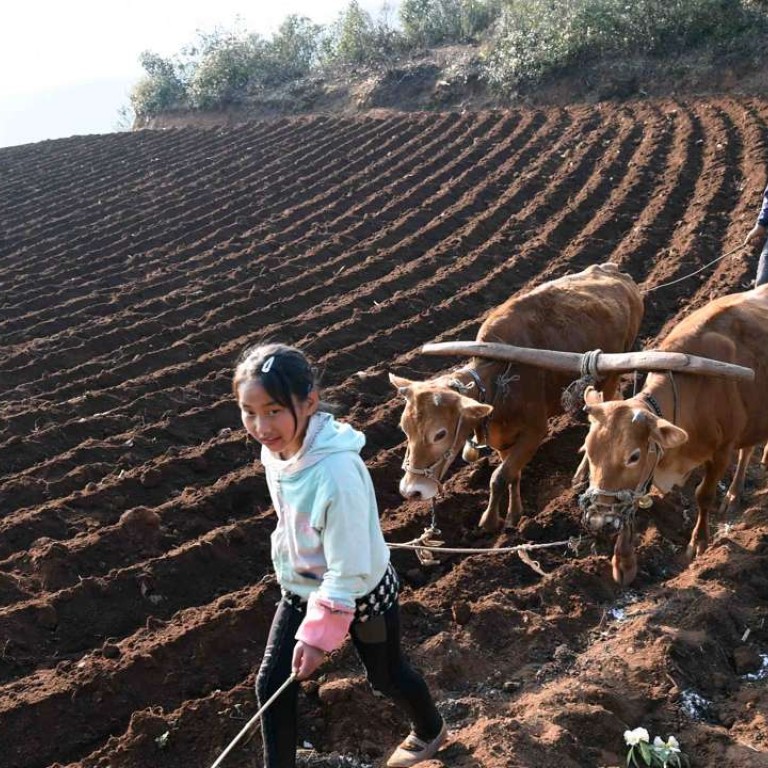
Tainted baby milk, rat meat and gutter oil bring challenges and opportunities for China’s agricultural producers
Food scandals have brought winners and losers for the sector
Too many recent food scandals have brought huge distrust among Chinese consumers over local food production. That has brought opportunities and challenges for the country’s agricultural sector.
From baby milk powder tainted with melamine and rat meat passed off as lamb to gutter oil recycled from sewers and used for cooking oil, Chinese consumers have many reasons to worry about the quality of the food on their table.
In 2013, the Ministry of Public Security said the police had arrested more than 60 people who had sold rat and fox meat as mutton. In 2011, the Chinese dozens of people were taken into custody, suspected of collecting oil from restaurant gutters and selling it as cooking oil again. In 2008, the country reported hundreds of thousands of victims of tainted baby milk powder. Six babies died from kidney stones.
The growing concerns over food safety have changed people’s consumption patterns, as they turn to higher-quality imported food they consider a safer option. And this has led to surge in imports of agricultural products in recent years.
In light of the huge increase in trade, winners are downstream importers, retailers, and further upstream input companies, Natixis analysts Iris Pang and Gary Ng said in a recent research note.
“Importers and retailers enjoy the ride of surging demand for higher quality food, while input companies have increased sales as government policies focus on increasing production volumes,” they said.
Industrial Securities analysts echoed those opinions.
Chen Haokun, an equity analyst for Industrial Securities, said mainland China-listed retailers of imported beef are their most preferred stock picks this year because the estimated profitability of imported beef retailing could exceed 50 per cent.
“The profit mainly lies in the retailing part,” he said.
In particular, Chen recommended Shanghai-listed Shanghai Maling Aquarius and set a target price at 21 yuan.
Shares of Shanghai Maling Aquarius closed on Friday at 10.34 yuan, according to Bloomberg data.
Essence Securities also advised investors to look at investment opportunities in beef importers and retailers. The firm’s top pick in the sector is Shenzhen-listed Xinjiang Tianshan Animal Husbandry Bio-Engineering, which bought a pasture in Australia in 2014 for approximately 146 million yuan to breed beef cattle.
The company has “expanded into the supply chain,” Essence Securities said.
In addition to downstream retailers and importers, upstream agricultural input companies are also keen to ride the wave of consumer’s booming demand in high-quality foreign food.
This week Liu Yonghao, chairman of animal feed producer New Hope Group, said the company will increase its overseas investments to 17 billion yuan in the next 3 to 5 years, including buying farms and food processing companies in Australia, New Zealand and the US, in order to secure resources in high-protein meat and diary products.
“China has an oversupply of low-end meat products and the market is overly competitive. However, the supply of high-end meat is insufficient to meet the country’s huge demand,” Liu said in an interview with the Beijing News.
“Chinese firms have to invest abroad to secure supply and technology, especially in ways to improve productivity and, more importantly, to have a higher practising standard on food safety,” the analysts from Natixis said.
However, there are also possible losers from the change in people’s consumption pattern.
Agricultural producers in the middle of the supply chain, such as farmers producing crops, meat or dairy products, have weakened as the price of locally-farmed products is higher than imported food due to the government’s support price mechanism to protect domestic farmers.
“Labour costs rise as the rural population moves to cities,” the Natixis analysts said. That puts “China into a trade-off between rising rural income and price stability,” they said.
More importantly, China’s insufficient safety standards have fuelled food safety concerns, worsening for the outlook for domestic agricultural producers.
“The vast majority of existing subsidies have focused on its incentives to boost production quickly, leading to indiscriminate use of fertilisers and pesticides. This could indeed maintain the food production growth in a year or two, but is detrimental to long-term food security,” the analysts said.

